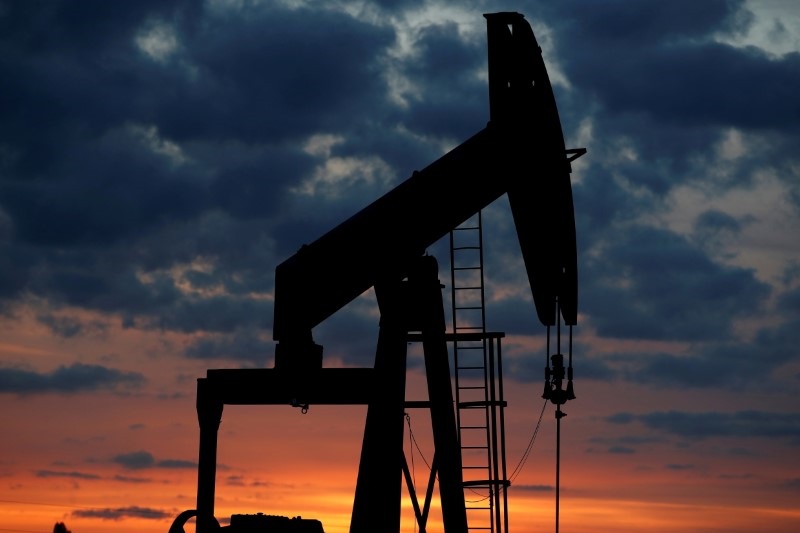[ad_1]
© Reuters. A general view shows the oil refinery of the Lukoil company in Volgograd, Russia April 22, 2022. REUTERS/REUTERS PHOTOGRAPHER
By Julia Payne
LONDON (Reuters) -Oil prices dumped on Friday to trade at levels not seen since January as the hit its strongest level in two decades and on demand fears as rising interest rates risked tipping major economics into recession.
futures fell $2.65, or 2.93%, to $87.81 a barrel by 1244 GMT. U.S. West Texas Intermediate (WTI) crude futures were also down, retreating by $2.83, or 3.39%, to $80.66.
Front-month Brent and WTI contracts were down 3.78% and 5.37% respectively over the past week.
Global equities hit a two-year low on Friday while the dollar index reached its highest level in two decades, putting downward pressure on oil.
“Weak European PMIs, growth concerns as result of aggressive monetary policy tightening in the US and Europe are weighing on risk assets. Oil prices are not immune to those growth concerns,” Giovanni Staunovo, analyst at UBS, said.
A downturn in business activity across the euro zone deepened in September, a survey showed, suggesting that a recession is looming as consumers rein in spending to contend with a cost of living crisis.
“European equity gauges are ending the week on a negative note amid fears that rate hikes will push major economies into recession,” PVM Oil Associates said in a note.
Russia launched referendums on Friday aimed at annexing four occupied regions of Ukraine, which Kyiv called an illegal sham that it said included threats to residents if they do not vote.
After the U.S. Federal Reserve raised interest rates by a hefty 75 basis points on Wednesday, central banks around the world followed suit with hikes of their own, raising the risk of economic slowdowns.
In Britain, meanwhile, the pound fell to a 37-year low and government bonds crashed after the new finance minister announced historic tax cuts and huge increases to borrowing.
On the oil supply side, efforts to revive the 2015 Iran nuclear deal have stalled as Tehran insists on the closure of the U.N. nuclear watchdog’s investigations, a senior U.S. State Department official said, easing expectations of a resurgence of Iranian exports.
[ad_2]
Image and article originally from www.investing.com. Read the original article here.

